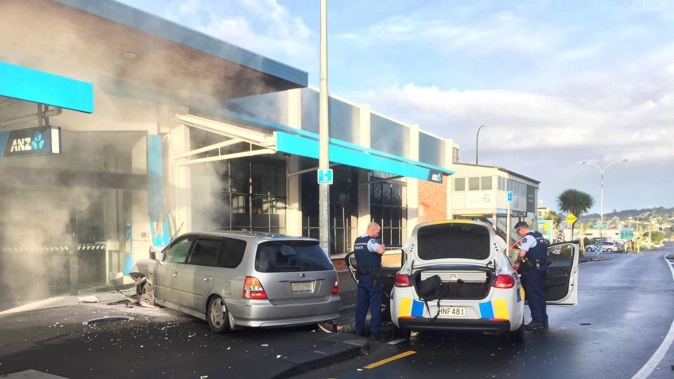
Remotely immobilising cars could be a game-changer in fighting crime, especially stopping fleeing drivers, the Police Association says.
The Herald last year found annual pursuit incidents more than doubled in the past decade, seriously injured more than 400 people and claimed 77 lives.
Police since late 2020 have only chased fleeing drivers if a threat before the pursuit was established and a need existed for the driver to be apprehended immediately.
The policy has been politically contentious, and contentious within police.
Recent ram raids have reignited the debate and National Party leader Christopher Luxon today said he wanted police pursuit policy reviewed.
"There's no easy answer and there won't be until we can remotely immobilise vehicles," Police Association president Chris Cahill said.
He said feasible remote immobilisation technology would likely be fitted during manufacturing, rather than at dealerships.
Cahill said if the technology might save lives by preventing crashes, a case could be made for police using it in New Zealand.
"We'll have to see how practical it is."
Cahill said one drawback was that many of the most commonly-stolen cars were older models.
But he said if more and more new cars had the technology, it would be a "game changer".
Motoring expert Clive Matthew-Wilson said car finance companies in the US already used the immobilisation technology.
"Many hire purchase companies will instantly immobilise your vehicle if you skip a payment," he said.
"It's fairly brutal, because you could be in the middle lane on a motorway when your vehicle suddenly stops without warning."
Matthew-Wilson, who edits car review website dogandlemon.com, said using the technology for New Zealand law enforcement faced many challenges.
"Only very recent vehicles have this technology from new and New Zealand has one of the oldest fleets in the Western World," he said.
"Retrofitting every vehicle with reliable immobilisation technology is basically impossible for the foreseeable future."
And Matthew-Wilson said the sort of criminals who stole cars and used them in ram-raids could probably also immobilise the immobilisers.
He said the fleeing driver debate was a dilemma for police.
"If the police pursue a vehicle at high speed, a serious accident involving innocent motorists is a high possibility. If they abandon the pursuit, the criminals are effectively giving the fingers to the cops."
But he said police knew the identities of many criminals.
"So it's up to the cops to use good old-fashioned police work to locate these criminals after a pursuit," he added.
Relevant technology has been in development for more than a decade.
In 2019, Hyundai remotely powered down a stolen SUV during a police chase in Nashville, Tennessee.
A local car dealer told NewsChannel5 the technology slowed the car down, then stopped the engine, and brought the car to a halt.
In 2009, General Motors planned to equip 1.7 million vehicles with a system allowing pursuing officers to request engines in stolen cars be remotely switched off.
GM subsidiary OnStar developed the system using a built-in GPS device.
Nowadays, the US company allows people using a mobile app to lock and unlock doors, switch lights on and off, and start or stop the car.
Take your Radio, Podcasts and Music with you









